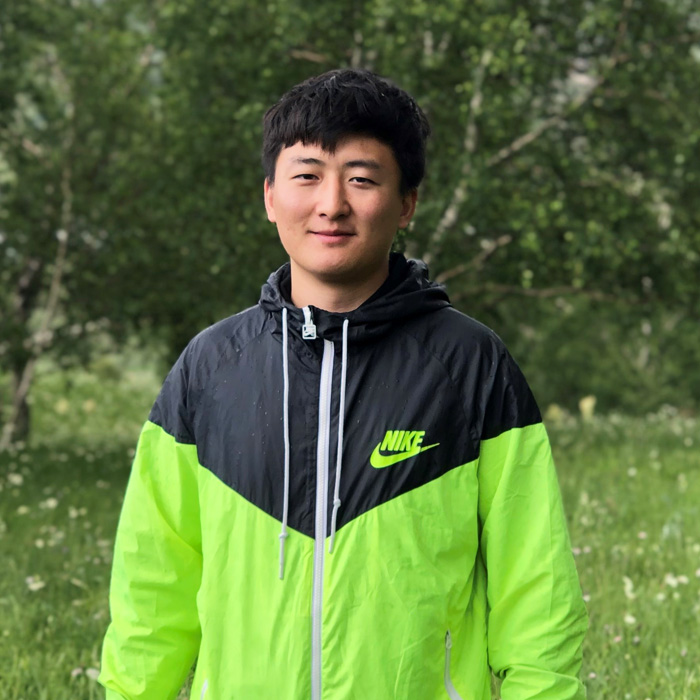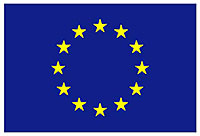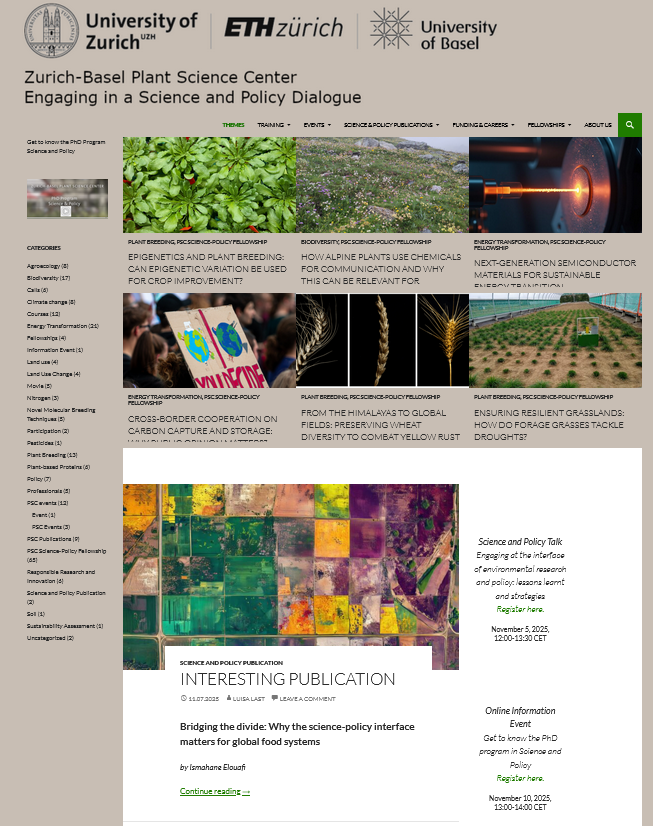Exploitation of Genomic Resources to Advance Forage Breeding Programs

Fellowship Duration: Nov 2020 - Jan 2025
PhD Student: Yutang Chen (LinkedIn)
Principal Investigator: Prof. Dr. Bruno Studer, Molecular Plant Breeding, Institute of Agricultural Sciences, ETH Zurich, Switzerland
Project Partner: Dr. Ingo Lenk, DLF Seeds & Science, Denmark
Research Fields: Plant Breeding, Forage Grass Genomics, Bioinformatics
Project Description
Italian ryegrass (Lolium multiflorum Lam.), perennial ryegrass (L. perenne L.) and meadow fescue (Festuca pratensis Huds.) are the three most important forage grasses in the temperate regions across the world, providing a major feed for livestock in these regions. Currently, high-quality genomic resources are scarce for these forage grasses, hindering genomics-assisted breeding tools, such as genomic selection and gene editing, to accelerate forage breeding. To keep pace with climate change and population growth, high-quality genomics resources, such as reference-grade chromosome-level genome assemblies, are urgently needed for forage grasses.
Recent advances in long-read sequencing technologies, such as Oxford Nanopore Technologies (ONT) and Pacific Biosciences high-fidelity sequencing (PacBio HiFi), together with the state-of-the-art genome assembly methods with long reads provide a promising approach to sequence and assemble the complex genomes of forage grasses. This offers us the opportunity to generate reference-level genome assemblies to advance forage research and breeding.
This project aims to 1) sequence 10 representative diploid genotypes from the Lolium-Festuca species complex with various sequencing technologies, including ONT and PacBio HiFi long-read sequencing, Illumina whole-genome short-read sequencing and high-throughput chromosome conformation capture (Hi-C), 2) establish genome assembly and phasing pipelines to construct chromosome-level haplotype-resolved genome assemblies for these 10 genotypes, 3) accurately annotate the resulting genome assemblies, including a) coding gene prediction with transcriptome sequencing data and b) transposable elements (TE) characterization, 4) build gene-based or k-mer-based pangenomes with the 10 genotypes to provide insight into the genetic diversity of forage grasses.
This fellowship is hosted by the Zurich-Basel Plant Science Center.
Activities and Publications
Doctoral thesis (ongoing)
PSC Blog article (2024) on Providing genomic resources for important forage grasses
Preprint in bioRxiv on Chromosome-level haplotype-resolved genome assembly provides insights into the highly heterozygous genome of Italian ryegrass (Lolium multiflorum Lam.)
Peer-reviewed article in GigaBite (2024) on An improved chromosome-level genome assembly of perennial ryegrass (Lolium perenne L.)
Peer-reviewed article in the Plant Journal (2024) on High-resolution bulked segregant analysis enables candidate gene identification for bacterial wilt resistance in Italian ryegrass (Lolium multiflorum Lam.)
Peer-reviewed article in Scientific Data (2024) on Haplotype-resolved and near-T2T genome assembly of the African catfish (Clarias gariepinus)
Conference talk at the 35th EUCARPIA Fodder Crops and Amenity Grasses Section Conference (Brno, Czech Republic, Sep 2023)
Conference talk at the Plant & Animal Genome Conference (PAG 30) (San Diego, USA, Jan 2023)
Conference talk at the EUCARPIA Fodder Crops and Amenity Grass Section Meeting (Freising, Germany Sep 2021)
Conference poster at ETH-MPB – AGS-PFZ Exchange (Zurich, Switzerland, Nov 2022)
Open datasets (2023 and 2024) available at NCBI GenBank
Open datasets (2024) available at GitHub
Seminar talk at WATERMAN Hybrid Seminar Series on Bioinformatics at IPK (Gatersleben, Germany, Dec 2022)
Public talk at the AgroTech Day as part of the 150th anniversary of “Agricultural Sciences at ETH Zurich (Online, May 2021)
Secondment
During his secondment with his project partner, DLF seeds A/S, in Denmark, Yutang did the following:
- Involved in high-throughput DNA extraction with automated DNA extraction system for 800 individuals from an F1 population of a F. pratensis genotype (K6) that was sequenced in our project. This resulted in DNA molecules of every F1 individual.
- Involved in genotyping-by-sequencing (GBS) library preparation for the 800 F1 individuals, and the library was further sequenced, resulting in single-end short-read GBS data for every F1 individual. This provided the genotypic data of the individual for further genetic analysis.
- Collected phenotypic data, including plant height and flowering time, from the 800 F1 individuals. This provided the phenotypic data for further genetic analysis.
- Collected tissue samples from K6 and conducted full-length cDNA sequencing using ONT MinION device with the tissue samples. This resulted in full-length transcripts, which will help gene prediction in our project.
- Conducted genome assembly for K6 with the ONT long-read data generated previously by my colleagues.
- Joined in team building activities with colleagues at DLF, and enjoyed the working environment at DLF
Duration: Sep - Nov 2021 and Mar – Jul 2022
Stakeholder Workshop
The title of the stakeholder workshop was “The status of genomic resources and genome assemblies of the Lolium-Festuca species complex”, and it took place on April 14, 2021 (online) with the International Lolium Festuca Pangenome Consortium (ILFPC).
ILFPC is an international genome sequencing consortium for species in Lolium-Festuca species complex, coordinated by Prof. Bruno Studer of the Molecular Plant Breeding (MPB) group at ETH Zurich. It includes the following partners working closely on forage and turf grasses:
- MPB at ETH Zurich, Switzerland
- The Agriculture and Food Development Authority (Teagasc), Ireland
- The Lithuanian Research Centre for Agriculture and Forestry (LAMMC), Lithuania
- Bavarian State Research Center for Agriculture (LfL), Germany
- AgResearch, New Zealand
- DLF Seeds A/S, Denmark
- Norwegian University of Life Sciences, Ås, Norway
- Agroscope, Switzerland
- Aarhus University, Denmark
ILFPC aims to sequence representative genotypes in Lolium-Festuca species complex with state-of-the-art sequencing technologies to generate chromosome-level haplotype-resolved assemblies for forage grasses. The main goal of the consortium is to provide comprehensive pan-genomic resources and help develop and improve breeding methods for forage and turf grasses. I reported current progress and genomic resources to all partners, and we discussed how to proceed next. The main outcomes or main points discussed during the meeting include the following:
- genomic resources obtained so far for Lolium and Festuca species
- a bioinformatic pipeline to produce haploid assembly for a highly heterozygous forage grass genome
- plans for sequencing more genotypes
- plans for producing Hi-C and RNA-Seq data
- how to share and access data within ILFPC
- where and how to contribute to the consortium for every stakeholder



